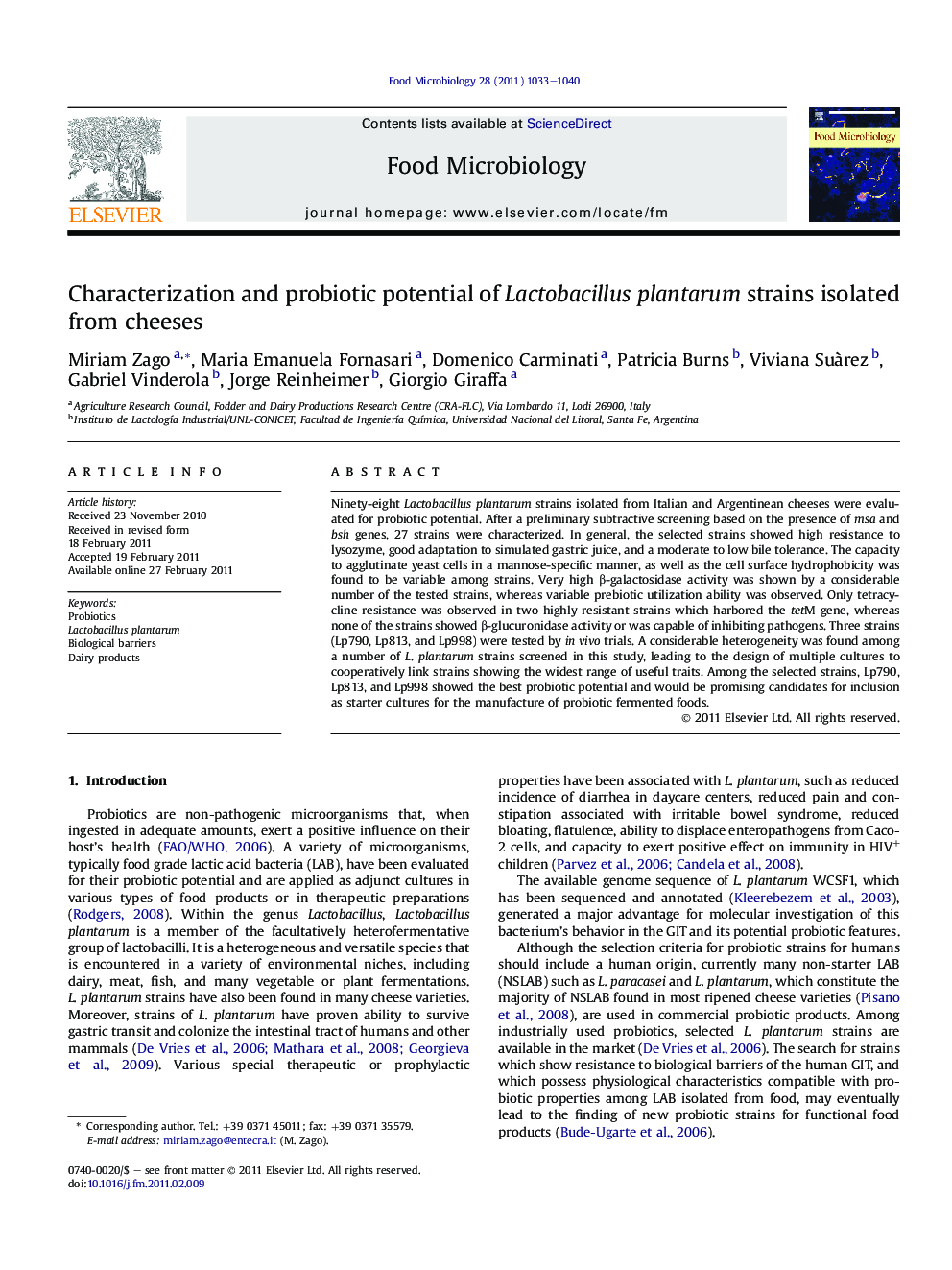| Article ID | Journal | Published Year | Pages | File Type |
|---|---|---|---|---|
| 4363167 | Food Microbiology | 2011 | 8 Pages |
Ninety-eight Lactobacillus plantarum strains isolated from Italian and Argentinean cheeses were evaluated for probiotic potential. After a preliminary subtractive screening based on the presence of msa and bsh genes, 27 strains were characterized. In general, the selected strains showed high resistance to lysozyme, good adaptation to simulated gastric juice, and a moderate to low bile tolerance. The capacity to agglutinate yeast cells in a mannose-specific manner, as well as the cell surface hydrophobicity was found to be variable among strains. Very high β-galactosidase activity was shown by a considerable number of the tested strains, whereas variable prebiotic utilization ability was observed. Only tetracycline resistance was observed in two highly resistant strains which harbored the tetM gene, whereas none of the strains showed β-glucuronidase activity or was capable of inhibiting pathogens. Three strains (Lp790, Lp813, and Lp998) were tested by in vivo trials. A considerable heterogeneity was found among a number of L. plantarum strains screened in this study, leading to the design of multiple cultures to cooperatively link strains showing the widest range of useful traits. Among the selected strains, Lp790, Lp813, and Lp998 showed the best probiotic potential and would be promising candidates for inclusion as starter cultures for the manufacture of probiotic fermented foods.
► Lactobacillus plantarum cheese strains evaluated for probiotic potential. ► Choice of 25 strains after screening based on the presence of msa and bsh genes. ► In vitro and in vivo analysis to assess strains probiotic properties. ► Considerable heterogeneity was found among L. plantarum strains. ► Three strains would be candidates as starter cultures for probiotic fermented foods.
